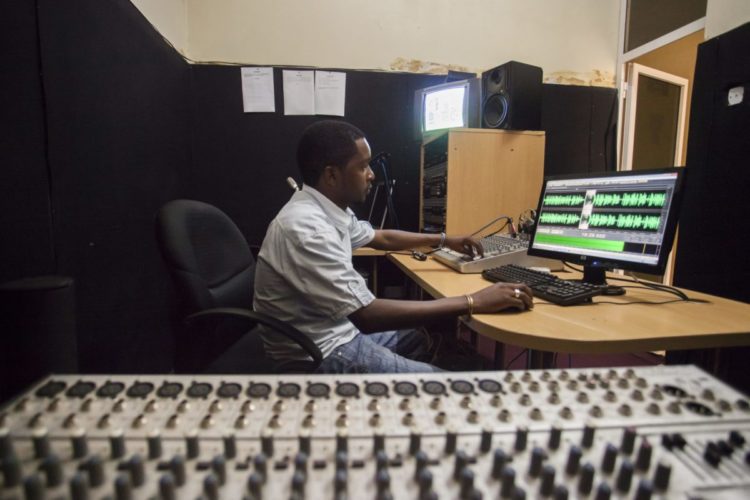In July and early August, Farm Radio International asked our broadcasting partners to tell us how they use Barza Wire Farmer stories. Fifty-eight people responded and shared their stories of how Barza Wire, Farm Radio scripts, and training resources improve their programming.
Respondents said they had read and used Farmer stories on a variety of topics, but mainly: climate change; crop production, handling, and processing; COVID-19, and gender. COVID-19 and gender were by far the most popular topics.
The majority of respondents use Farmer stories regularly in their programming, with many saying they use them at least once per week. The vast majority said they had used the stories recently—in the past two or three months.
Many people said they use Farmer stories to generate ideas on what topics to cover in their program. One respondent in Mozambique said that the story from Uganda “Including people with disabilities in farmer trainings increases family incomes (IPS)” inspired them to interview someone with a disability live on air. The broadcaster said, “Thanks to this (Barza Wire Farmer story), my guest was more willing to share his story and defend that people with disabilities have the same rights as anyone else.”
The majority of respondents said that they read Farmer stories on air as part of their programs, often in local languages. Many said this gives their listeners real examples of the topics they cover in their programs—for example, COVID-19 safety measures helping to protect families, and vaccination success stories. Others reported that they used the stories as part of their research for programs on particular topics.
Still others said that they read the news brief at the start of a program and use it as a prompt to ask guests questions about the topic—for example, how to apply agricultural techniques locally. Similarly, some broadcasters say they read the story as a starting point for a debate. One respondent in Burkina Faso said they used “Burkina Faso: Issouf Ouédraogo, an example of positive masculinity” to launch a debate about men’s role in childcare.
The broadcaster said, “I read a portion of the story about Issouf Ouédraogo on the show, (and as a result, a guest) was convinced that men should participate in their family’s health, and committed to changing his behavior.”
The broadcaster said the show received very positive feedback from listeners, and many people phoned in to discuss the issue. Many broadcasters agreed, and one Zambian broadcaster said that Barza Wire Farmer stories bring “a testimonial aspect to the show and enhance listener participation.”
Most importantly, broadcasters told us that Farmer stories make a difference in their listeners’ lives. In Uganda, a broadcaster who read “DRC: New stove saves forests by saving fuel (Global Press Journal)” on air said: “We used the story as a follow up to a particular segment in encouraging listeners to get involved in making local stoves to help them save wood and charcoal. Most of the listeners, especially the elderly, responded positively and were helped to make stoves for free.”
In DRC, one broadcaster reported reading a Stars in the Field profile, and said the story helped him demonstrate positive masculinity to his audience. He explained: “This story helped me to convince my listeners that women are also capable of doing what men can do. I told men that there is no such thing as a taboo job, and men can also do what women can do.”
Thanks to all respondents for taking the time to share how you use Barza Wire Farmer stories. Congratulations to the winners of the draw: Joshua Kakooza from AWR Vine Radio 92.4 FM in Uganda, and Kossi Wolanyo Mivedesome from Radio Béthel in Togo.
Photo: Mohamen Hamis, producer at Radio 5 studios in Arusha, Tanzania on October 8, 2013.


Comments are closed, but trackbacks and pingbacks are open.